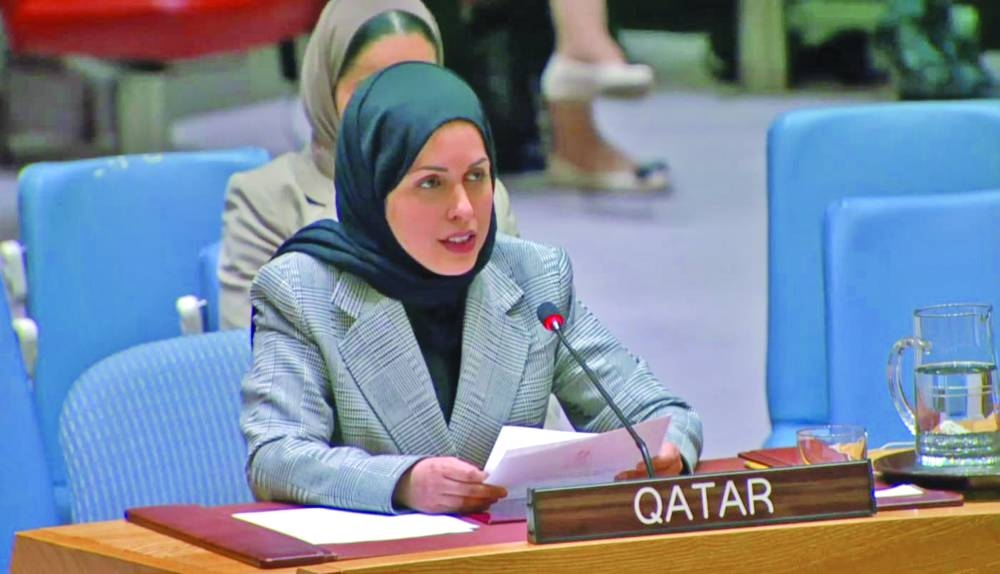Qatar has reaffirmed its steadfast commitment to working with the international community in advancing efforts that elevate the role of women in peace and security. It emphasised that supporting the Women, Peace, and Security (WPS) agenda is essential for achieving the 2030 Sustainable Development Goals.
This declaration was made by HE Sheikha Alya Ahmed bin Saif al-Thani, Qatar's Permanent Representative to the UN, during the Security Council's open discussion on "Women Building Peace in a Changing Environment" in New York.
She underscored that, despite significant strides in the WPS agenda, many conflict zones continue to see grave violations of international humanitarian and human rights laws, often met with impunity. She noted that women and girls bear the brunt of these crises, particularly in Gaza, where ongoing aggression leads to severe humanitarian violations. Women and girls are especially vulnerable, facing risks from airstrikes, health crises, shortages in essential supplies, the destruction of educational infrastructure, and widespread displacement.
Emphasising the urgency of translating political commitments into tangible actions, HE Sheikha Alya called for increased awareness of women's vital role in peace and security. She highlighted the importance of empowering women in conflict prevention and response efforts, stressing that women's leadership in these areas is essential to addressing today's complex global challenges.
Reaffirming Qatar's dedication to fully implementing the WPS agenda, she expressed pride in Qatar's support for the UN Secretary-General's "Joint Pledge for Women's Participation in Peace Processes." She added that the upcoming 25th anniversary of UN Security Council Resolution 1325 presents a valuable opportunity to reflect on the transformative impact of the WPS agenda.
HE Sheikha Alya underscored the need to expedite progress across the agenda's four pillars: prevention, protection, participation, and relief and recovery. She welcomed the newly adopted "Charter for the Future," which she described as a critical platform for advancing these goals, particularly in recognizing women's pivotal role in achieving lasting peace. Their full and equal participation in decision-making at all levels of peace and security processes is fundamental to sustaining global stability.
In response to discussion points raised, she called on the international community to act on political will by implementing specific measures and establishing accountability mechanisms to track progress in women's involvement in peace initiatives. Highlighting the significance of building local capacities, she emphasised the need to engage women at all levels to shape sustainable peace outcomes. She also noted Qatar's active membership in the Arab Network for Women Peace Mediators, which works to facilitate women's participation in peacebuilding efforts.
HE Sheikha Alya also addressed the dual impact of emerging technologies on peace processes, noting that while they can enhance inclusiveness and access for women, they also carry risks of misuse for spreading misinformation. She called on the international community to develop robust safeguards to protect women in public spaces and provide them with the necessary resources to confront these challenges safely.

